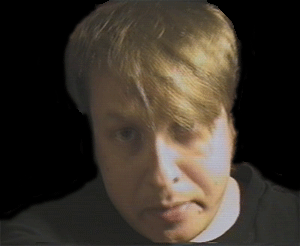
When punk rock happens, it is like a Stalinist putsch or Chinese Culture Revolution in music. Malcolm McLaren decides to start his own version of The Monkees for the bleak, post-oil crisis and pre-Thatcher 70s, and calls them Sex Pistols. Whereas 60s' slogans were "Peace" and "Love", now they are "Anarchy" and "Destroy". Out go prog-rock and concept albums, long hairs and beards; in other words: all things that are by now BORING -- in come three chords rock (taking its cues from The Stooges and New York Dolls), pogoing, nihilism and sniffing glue.
In 1977, as British punk rock's first vital energy is on the point of burning itself out, Howard Devoto, the founder, lyricist and front man of Buzzcocks, decides to make a change.
In a statement issued that February -- to announce that he is leaving Buzzcocks -- Devoto writes: "I don't like most of this new wave music. I don't like music. I don't like movements. Despite all that -- things still have to be said. But I am not confident of Buzzcocks' intention to get out of the dry land of new waveness to a place from which these things could be said. What was once unhealthily fresh is now a clean old hat."
Devoto thinks punk has become derivative, one-dimensional, unimaginative and predictable; in other words: BORING.
Devoto's new band calls itself Magazine, and consists of himself, Barry Adamson (bass), Dave Formula (keyboards), John McGeoch (guitar) and John Doyle (drums).
We have moved to the post-punk period; on their way are also the post-Pink Flag Wire, Public Image Limited, Joy Division, Gang of Four, Pop Group, Scritti Politti, and, later on, erm, Simple Minds and U2, and the ultra-white horrors of goth-rock. (And also synthpop, paving way for the 80s' and 90s' techno and house music.) Punk's simplistic sloganeering and throwaway pub rock-cum-The Stooges chainsaw guitar sounds give way to a more "arty" approach, more complex and nuanced melodies, even having space for synthesizers, previously known from the bloated concept albums of Pink Floyd and Yes -- vade retro! Has prog-rock made its feared return in the disguise of post-punk?
Michael Bracewell writes about Magazine for the liner notes of band's 2000 compilation Where The Power Is:
The group had a natural genius for the drama (and melodrama) of music, for that edgy filmic quality which could pick its way to the beginnings of self-parody before suddenly jolting back to the vitality of the original theme. Their intuitive leanings toward a type of music which expressed nervousness and apprehension -- a soundtrack, if you want, for film of a poorly-lit turn in the dark corridor -- were matched by their ability to pick up on the glamour and urgency of, for instance, spy movie themes from the 1960s and 1970s. Mixed together into their own unique sound, these influences became the ideal vehicle for Devoto's equally eclectic -- yet perfectly poised -- combinations of lyric, vocal and performing style.
Magazine's best-known track is their 1978 single 'Shot By Both Sides'; with a haunting melody added to punkish buzz-saw guitars, and the elliptical, existential lyrics which depict the lonely dissident outsider's ultimate position everywhere: "Shot by both sides / on the run to the outside of everything / shot by both sides / they must have come to a secret understanding". We are stuck on no man's land between warring factions, dodging bullets from both prog conservatives and punk partisans.
After Magazine disbanded, Barry Adamson got into his film music-influenced solo albums, even collaborating with Pan sonic; John McGeoch (who sadly passed in 2004) went on with Siouxsie and the Banshees and the much-maligned but at times brilliant ('Fade To Grey'!) Visage, where also keyboard player Dave Formula (familiar from Ultravox) joined. Howard Devoto collaborated with Luxuria, This Mortal Coil and Apollo 440!


No comments:
Post a Comment